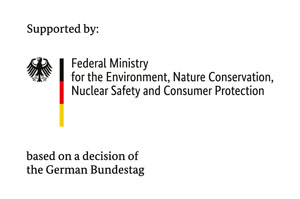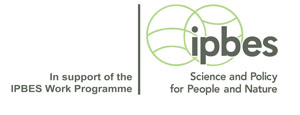Plastic pandemonium: exposing the dark side of African waste management by Orina A. & Talemwa W.

The blockbuster animated film Wall-E is one of the critical films of contemporary society. It follows the life of a robot in a dystopian future, and without giving too much away, this sci-fi movie is closer to reality than we realise. As it reveals the unsettling parallels between fantasy and truth. Plastic pollution and waste management in African cities are reminiscent of the enthralling sequences in Wall-E. Pollution is not a natural occurrence but something that can be regulated and avoided; nonetheless, humans choose to ignore it.
As the planet chokes on plastics, the United Nations Environmental Assembly resolved on March 22, 2020, in Nairobi, to stop plastic pollution by 2024[1]. According to the United Nations Environmental Program’s global assessment of marine litter and plastic pollution[2], fast-expanding plastic pollution is a critical concern globally, with plastics being the most dominant marine debris and the largest source of contamination, accounting for 85% of all marine litters[3].
This raises the hazard of plastics from sources to the ocean. In addition, when these plastics reach the environment, they may fragment and remain there for many decades, degrading ecosystems, wildlife, and human health[4]. Hence, immediate global action is needed to achieve a pollution-free Earth.One million plastic bottles are purchased worldwide every minute, and 5 trillion plastic bags are used annually[5]. Plastic containers were manufactured in small quantities between 1950 and 1970, but more than doubled between 1970 and 1990, and by the 2000s, the amount produced was greater than that produced and utilised in the past four decades[6]. Today, 400 million tonnes of plastic are manufactured each year, with less than 10% recycled[7].
Plastic pollution in the district and suburb of Abidjan: inherent dangers
Polythene bags contain hazardous compounds such as bisphenol-A (BPA), which react with food when cooked. It is a regular practice in Ugandan local eateries (Bufunda) to cover food during cooking with large black and green plastic bags. Most fast-food restaurants provide heated snacks in plastic bags, putting public health in danger[8]. BPA has been linked to cancer, infertility, and organ harm[9] [10]. Polythene plastic bags are non-biodegradable, causing soil degradation, water contamination, and livestock deaths.
Abidjan, a vibrant city in West Africa, produces 288 tonnes of plastic waste every day, and only 5% of it is recycled[11] adding to the total of 1.7 million tonnes of garbage per year. Plastic pollution is not only an issue in Abidjan but also on the streets of Bingerville, one of its suburbs. The majority of the plastics used are single-use plastic bags (locally referred to as “sachets”) and containers that are disposed of indiscriminately. These plastic materials litter its streets, burdening its meagre waste management infrastructure. Scavenger birds, such as the pied crow, have become a disturbing symbol of the struggle with plastic debris in the middle of its hustle and bustle. These once-rare birds have flocked to Bingerville in quest of food amid a sea of plastic waste. The appearance of these scavenger birds scrounging for food serves as a harsh reminder of the ecological imbalance caused by plastic litter.
Aside from the aesthetic impacts, plastic pollution is a serious threat to the environment and public health. Improperly disposed of plastics contaminate water bodies, upsetting these fragile ecosystems and threatening aquatic organisms. Furthermore, the burning of plastic garbage emits poisonous fumes and vapours, exacerbating air pollution and respiratory problems among urban dwellers. In addition, clogged sewers and storm drains caused by plastic garbage increase the risk of floods during the rainy season, potentially leading to avoidable loss of life and damage to properties and infrastructure, weakening communities’ resilience to climate change, and hampering sustainable growth and development.
To address the plastic pollution crisis, there is a need to adopt a whole-of-society approach. There is a need for societal transformation in areas of production, consumption patterns, and waste management systems. National and subnational governments must collaborate with a wide range of stakeholder groups, including local communities, the private sector, and civil society organisations (CSOs), which is essential for adopting sustainable solutions and building an environmental stewardship culture. There is also a dire need for investment in fail-proof waste management systems, such as better collection, recycling, and disposal infrastructure. Education and awareness-raising are also needed to change consumers’ habits and promote responsible plastic use.

Abidjan’s plastic devastation is a microcosm of the waste management disaster overtaking African towns. Lagos, Nairobi, Kampala, and Cape Town are all witnessing the continuing Armageddon in which waste trumps resources and innovation fails to gain traction. These cities are wreaking havoc on the environment with overcrowded landfills, poor recycling facilities, and a public uninformed of the ticking time bomb that is their waste habits. Therefore, as Côte d’Ivoire advances its socio-economic development objectives, it is noteworthy that the decisions made today will impact environmental health outcomes. Today presents an opportunity for Abidjan to regain its glamour, strengthen the resilience of its ecosystems, and set an inspiring example for other African towns facing similar issues by tackling the plastic pollution epidemic head-on.
Success story on reduced single-use plastics
Countries such as Ireland has successfully reduced the use of single-use plastics through levies[12]. A steady increase in taxes on plastic bags cut their use from 328 bags per capita in 2002 to 14 bags per capita in 2012. In 2017, the charge was increased to 0.31$ per plastic bag from 0.2$, resulting in a further 90% reduction in the use of plastic bags in retail outlets. Funds received from this initiative were used to support plastic waste collection and recycling operations across the country[13].
Why do plastic ban plans and legislation fail in Africa?
The parliament of Uganda approved legislation in 2009 prohibiting the importation, manufacturing, sale, and use of plastic bags in the country; nevertheless, the ban on the use of polythene bags failed[14]. This ban was supposed to go into force in March 2010 but failed, with further announcements of bans following in 2015 and 2018, but this has yet to happen[15]. Concerning plastics, business continues regularly. When it comes to large corporations that produce polythene bags and other plastics, they employ a large number of people and pay significant amounts in taxes[16]. This created a quandary, and the president was quoted in 2018 stating, “We have tried the traditional packaging means and materials, and they used to disturb us a lot—pots and gourds are bulky and they would break“. There are reasons why plastics became more popular than any other packaging. The only problem with plastics is when you hold them improperly.” He added that instead of banning the use of polythene bags, the country needed factories that could recycle them into other products[17]. Despite this public policy failure and policy-implementation gap, the country spends approximately 5.6 billion Ugandan shillings (1.5 million Euros) annually to remove drainage that has been blocked with plastic debris in Kampala city[18]. Two East African countries, Kenya and Rwanda, successfully banned the production, importation, and use of plastic bags because there was a strong political will, with huge fines levied on any importation of polyethene into Kenya and Rwanda, as well as confiscating all plastic materials at their ports [19] [20].

The plastic treaty: a regulatory framework to break the vicious cycle and advance towards societal change
Glimmers of optimism shine through the tumult like beacons in the darkness. Unsung heroes and daring projects emerge, ready to shatter the chains of plastic pandemonium. The breakthrough plastic treaty[21], a global accord that tries to unify nations and stakeholders in the battle against plastic pollution, is one such initiative. The Plastic Treaty, which is intended to be a collaborative endeavour, seeks to address the full life cycle of plastics, from manufacture to disposal. It calls on governments, corporations, and organisations to take tangible steps to decrease plastic waste, promote recycling, and provide innovative alternatives. The Plastic Treaty aims to build a more sustainable future by encouraging international cooperation, information sharing, and accountability.
African countries play critical roles in influencing change within the framework of the Plastic Treaty. They can strengthen waste management systems, improve recycling infrastructure, and adopt legislation to reduce plastic pollution by signing and implementing this convention. As African states band together to address this common environmental concern, collaborative actions at the regional and continental levels can compound the impact. Lagos is a leader in creative recycling programmes, encouraging communities to gather waste and rewrite their futures. Nairobi’s steadfast ban on plastic bags sets an example for the rest of the globe, demonstrating that change is possible. Cape Town believes in the power of education, sparking a fire of awareness that will not go out. In addition, individuals and communities must also join forces to promote the Plastic Treaty. We can guarantee that governments and businesses prioritise sustainable practices and actively seek to reduce plastic pollution by lobbying for their acceptance and implementation. We can spark global change when we work together.
Plastic chaos grips Abidjan and other African cities, but we are not helpless. It is time to stand, armed with information and resolve, to confront this dreadful predicament. Accept the assault on single-use plastics, rally behind local heroes pushing for change, and demand dramatic changes in waste management policy. Let us recover our cities, heal our ecosystems, and construct a future free of plastic mayhem.
A call to action:
● We must alter our lifestyles: with rebellion and tenacity, refuse single-use plastics and choose non-plastic alternatives when shopping.
● Look for and support grassroots organisations that are combating the plastic menace.
● Amplify the voices of change on social media, become an advocate, and participate in community activities such as community cleaning, local waste collection, and informal waste recycling.
● Propose strict legislation and regulations to combat plastic pollution and trash management.
● Participate in community clean-ups and public awareness efforts.
● Spread the word about this blog article to unleash the power of collective action.
● Design and promote reuse, recycling, and retaining plastics in the economy as much as possible.
As Mahatma Gandhi famously stated, “Be the change you wish to see in the world.” Let us take on these words and become change agents in the fight against plastic pollution. We can turn the tide, safeguard our environment, and leave a legacy of sustainability for future generations if we work together.

References consulted:
[1] “Historic day in the campaign to beat plastic pollution – UNEP.” 2 Mar. 2022, https://www.unep.org/news-and-stories/press-release/historic-day-campaign-beat-plastic-pollution-nations-commit-develop.Accessed June 26 Jun. 2023.
[2] “A global assessment of marine litter and plastic pollution – UNEP.” 21 Oct. 2021, https://www.unep.org/resources/pollution-solution-global-assessment-marine-litter-and-plastic-pollution. Accessed 26 Jun. 2023.
[3] “Marine plastic pollution – resource | IUCN.” https://www.iucn.org/resources/issues-brief/marine-plastic-pollution. Accessed 26 Jun. 2023.
[4] “Assessment of agricultural plastics and their sustainability.” 22 Mar. 2022, https://www.fao.org/3/cb7856en/cb7856en.pdf. Accessed 25 Jun. 2023.
[5] “Visual Feature | Beat Plastic Pollution – UNEP.” https://unep.org/interactive/beat-plastic-pollution/. Accessed 26 Jun. 2023.
[6] “12 Plastic Pollution Facts That Show Why We Need To Do More.” 16 Jul. 2021, https://www.globalcitizen.org/en/content/effects-of-plastic-pollution-facts-you-should-know/. Accessed 26 Jun. 2023.
[7] “Visual Feature | Beat Plastic Pollution – UNEP.” https://unep.org/interactive/beat-plastic-pollution/. Accessed 26 Jun. 2023.
[8] “Can Uganda get over the plastics menace? – New Vision Official.” 11 May. 2023, https://www.newvision.co.ug/category/report/can-uganda-get-over-the-plastics-menace-160529. Accessed 25 Jun. 2023.
[9] FDA, 2014
[10] “The Impact of Bisphenol A on Fertility, Reproductive System, and ….” 10 Apr. 2019, https://www.ncbi.nlm.nih.gov/pmc/articles/PMC6481157/. Accessed 26 Jun. 2023.
[11] “A future for every child by beating plastic pollution | UNICEF.” https://www.unicef.org/cotedivoire/en/future-every-child-beating-plastic-pollution. Accessed 25 Jun. 2023.
[12] “Ireland—European Union.” https://environment.ec.europa.eu/system/files/2021-10/Ireland.pdf. Accessed 26 Jun. 2023.
[13] “Taxes on single-use plastics—OECD.” 4 Jun. 2020, https://www.oecd.org/stories/ocean/taxes-on-single-use-plastics-186a058b/. Accessed 26 Jun. 2023.
[14] See Uganda law https://nema.go.ug/sites/all/themes/nema/docs/National%20Environment%20Act,%20No.%205%20of%202019.pdf
[15] “Ban the (plastic) bag? Explaining variation in the implementation of ….” 15 Feb. 2021, https://journals.sagepub.com/doi/full/10.1177/2399654421994836.
[16] “Can Plastic Bags Be Banned? Uganda’s Schools Say ‘Yes,’ But ….” 24 May. 2019, https://globalpressjournal.com/africa/uganda/can-plastic-bags-banned-ugandas-schools-say-yes-history-says-otherwise/.
[17] “President Museveni opposed to kaveera ban – Observer.ug.” 2 Nov. 2018, https://observer.ug/news/headlines/59078-museveni-against-kaveera-ban. Accessed 25 Jun. 2023.
[18] “Can Uganda get over the plastics menace? – New Vision Official.” 11 May. 2023, https://www.newvision.co.ug/category/report/can-uganda-get-over-the-plastics-menace-160529. Accessed 25 Jun. 2023.
[19] “Ban the (plastic) bag? Explaining variation in the implementation of ….” 15 Feb. 2021, https://journals.sagepub.com/doi/full/10.1177/2399654421994836.
[20] “President Museveni opposed to kaveera ban – Observer.ug.” 2 Nov. 2018, https://observer.ug/news/headlines/59078-museveni-against-kaveera-ban. Accessed 26 Jun. 2023.
[21] “First steps agreed on plastics treaty after breakthrough at Paris talks.” 6 Jun. 2023, https://www.theguardian.com/environment/2023/jun/06/first-steps-agreed-on-plastics-treaty-after-breakthrough-at-paris-talks. Accessed 26 Jun. 2023.



